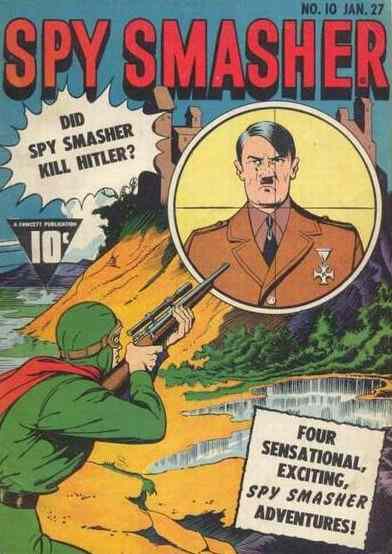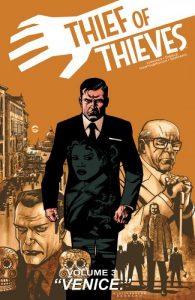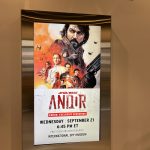Spies In Comics: Fact or Fiction?

Virtual Spy Museum webinar “Spies, Comics, and Cocktails,” gathered a panel of experts to discuss the link between real-life espionage and spies in comics.
The International Spy Museum, located in Washington, DC, spotlights the history of espionage in the United States and around the world. We have also covered when he museum has featured exhibits and discussions on famous spies in pop culture, most notably James Bond. This past week, the museum hosted a virtual webinar which doubled as a happy hour. Spies, Comics, and Cocktails recruited experts to discuss the history of espionage in comics as well as provide insight into the modern-day process of making comics featuring spies.
The cocktail portion of the evening began with a demonstration of how to make a drink inspired by one of the many featured in James Bond books and movies over the decades. Once the drinks were shaken (not stirred), the seminar began with a presentation from Mark Zaid, a comic book collector that specializes in vintage comics from the 1930s through the 1960s.
Zaid began his presentation by explaining that the vast majority of comics during that time period were made solely for kids. The earliest representations of spies in comics were from government agencies of the United States and typically were fighting against the country’s enemies, particularly in World War II. While many of these comics claimed to be based on actual top-secret missions, Zaid claimed that there was no evidence that comic creators had cooperation from the government.
Even if the spy stories depicted in the comics weren’t entirely accurate, many characters were based on real stories and people. While Zaid doesn’t believe that there was too much government influence on the comics, it’s hard to deny that the comics had a hand in influencing public perception of government agencies such as the FBI and the CIA and could easily be compared to propaganda. Though most of these early spy stories were based in reality, a few spy comics incorporated other genres such as supernatural and romance.
The nature of spy comics shifted in the 1960s as pop culture began to influence spy stories. This led to an increase in tie-in comics based on media such as Mission: Impossible, The Man from U.N.C.L.E. and James Bond. Even Mickey Mouse received a spy-based comic book. The pop culture influence of comics on spy media has continued to evolve over the years, with continued media tie-ins and comic book adaptations.
The next panelists, comic writer Andy Diggle and comic artist Shawn Martinbrough detailed the process of creating modern day spy comics. Diggle, who has worked on modern day James Bond comics, discussed the challenge of updating Ian Fleming’s Cold War based novels to modern day. However, he also emphasized the importance of the comics being entertaining over being accurate.

Martinbrough then showed off some pre-lettered and colored panels of his and Diggle’s collaboration, Thief of Thieves. The series ran for forty-three issues and centered on a series of heists building up to a larger heist. The two detailed the challenges of keeping the stories fresh over multiple heists and creating new action scenes to portray. Martinbrough explained the process of creating comics and detailed two action scenes in panels, a heist in an office building and a car chase scene. He then showed how comics influence spy movies, comparing panels to screenshots from popular movies such as Mission: Impossible.
With three different perspectives, Spies, Comics, and Cocktails provided an interesting look into the history of spies in comics and their influence on pop culture. Though these comics may not always be completely accurate, it’s hard to deny how these stories have captivated audiences and influenced our modern-day perspectives of spies.
I highly recommend the panel. The post will be updated when the YouTube link goes live!
–
(Update: The article initially mentioned the Thief of Thieves panels to be “unfinished”. We have updated this post with a correction.)
(Update: Here is the link to panel on YouTube!
Author: Jessica Wolff
Jessica Wolff is a graduate of Drexel University with a BS in Film/Video. She has a passion for entertainment and representation in entertainment. She currently resides outside of Washington, DC.
Help support independent journalism. Subscribe to our Patreon.
Copyright © The Geekiary
Do not copy our content in whole to other websites. If you are reading this anywhere besides TheGeekiary.com, it has been stolen.Read our

